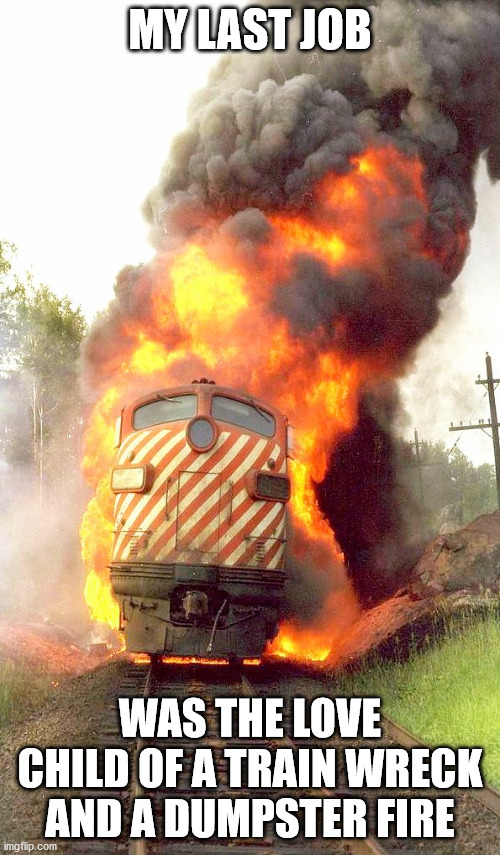
Right now the world is practically at a standstill in self-quarantine against the Coronavirus. While some people may be working remotely, a lot of businesses are actually closed for operation. A lot of people are out of work right now, and there’s no guarantee they’ll have a job when the pandemic eventually passes.
This can actually be a good thing.
Before I started coding in SQL, I used to work in manufacturing for about ten years. I held six jobs during that time and had gotten fired or laid off from every one of them. Funny thing is, within a few years after termination, something bad happened at the places where I used to work:
- Employer 1 (names withheld to protect the innocent) shut the plant down and moved operations to Mexico.
- Employer 2 got sued by his dad and had to exit the business, starting over in a completely different industry.
- Employer 3 had a wave of mass layoffs.
- My successors at Employer 4 all got fired by my former boss, after shorter tenures than mine. Many of them were casualties of an ongoing war between my ex-boss and the various plant managers.
- Employer 5 sold off the plant where I used to work, and the new owners purged the local leadership.
- Employer 6 lost business when their primary customer got hit by the 2008 recession, and had to lay off nearly 150 employees.
Looking back, it seemed like my exit was a foreshadowing of things to come, and I had dodged a bullet by getting terminated.
If you are forced to leave a job involuntarily, chances are it’s because it was a bad fit for you. Here are some of the reasons a job can be bad for you:
- You work for a bad boss. This was certainly true of Employer 2. He was an asshole.
- You work in a toxic or dysfunctional environment. Employer 5 had labor problems with the union, who seemed to have unresolved anger issues from the owners who shut the plant down.
- You work in a declining industry. Between NAFTA and China entering the WTO in the 90s and 00s, all the American manufacturing jobs were leaving the country. This hasn’t reversed until recently.
- The current position or employer doesn’t align with your long-term goals. By the time I started working for Employer 6, I had already gotten an IT certification, so there was no reason to stick around.
This, of course, is cold comfort immediately after you’ve lost a job. And it certainly doesn’t help you pay for food and rent. Here’s what you should do right now:
- Examine your own character issues. It takes two people to start a disagreement, and some of the problems are your own fault. Own up to your shortcomings and come up with a plan to fix them.
- Not everything about your old job was bad. Things that went well are strengths you can capitalize. For example, I realized I was good at the computer-related tasks of my old jobs and went straight into coding.
- If this isn’t the first job loss, see if there’s a pattern. Once is happenstance, twice is coincidence. But three times says something important you need to pay attention.
- Don’t play the blame game. This is especially true when interviewing with potential new employers. If they ask you why you left, just say it was a bad fit. A job interview is not the place to work through your anger issues.